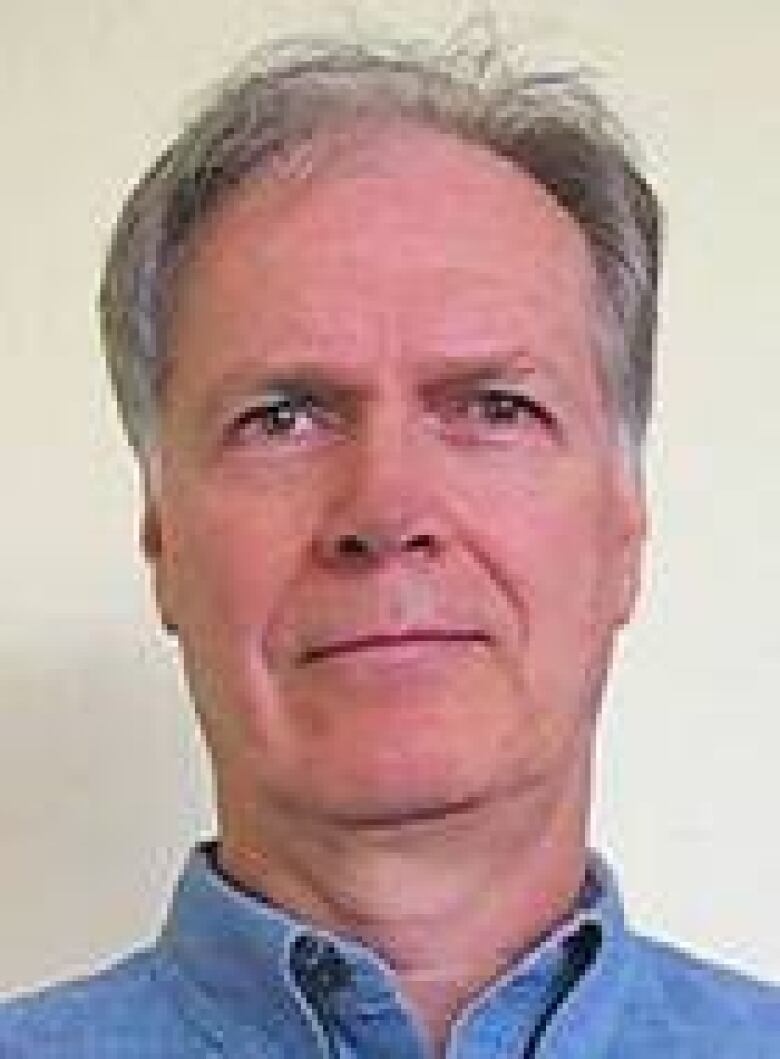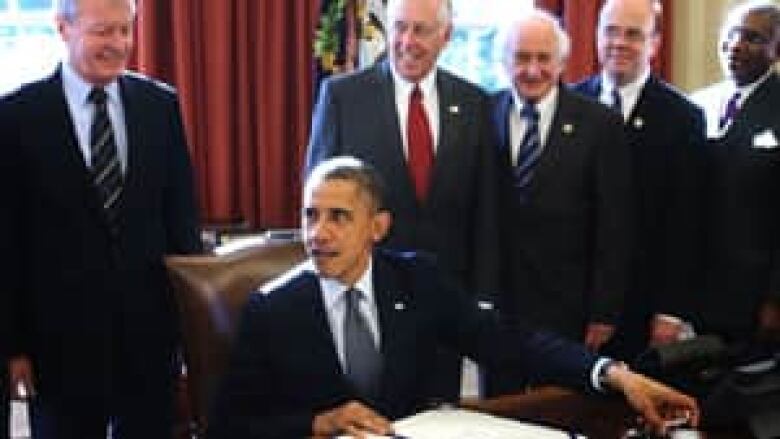Canadian's firm used in huge Russian tax scandal
Caribbean agency helped set up offshore companies connected to $230M scam
It's a tale with the cloak-and-dagger intrigue of a Hollywood thriller: a $230-million heist, corrupt Russian police and government officials, prison beatings, a dead lawyer, Kafkaesque trials and a diplomatic spat between international superpowers.
And now, for the first time,secret filesobtained exclusively in Canada by CBC News reveal how a Canadian-run offshore company in the Caribbean enabled the transfer of some of that money into a labyrinth of shell corporations around the world in a scandal known as the Magnitsky affair.
- INTERACTIVE: How the rich hide their money
- MAP: Tax haven investigations around the world
- EDITOR'S NOTE: Why CBC didn't publish all the names
The company, Commonwealth Trust Limited or CTL, operated out of the British Virgin Islands, one of the most secretive jurisdictions in the shadowy world of offshore finance. Founded by Toronto millionaire Tom Ward, CTL's business was registering and administering new BVI corporations for a global clientele.
While there's no evidence CTL or Ward actively participated in schemes to rob the Russian treasury, documents found amid amassive leak of financial recordsindicate that the company often failed to check who its real clients were and what they were up to a practice that allowed the colossal fraud at the heart of the Magnitsky case to unfurl.
"In a sense, CTL became a really good tool in the toolkit of organized criminals," said Jamison Firestone, a lawyer who represented the company victimized in the Russian heist.
"Organized criminals figure out, 'Who can we contact to help us move money? Who can we contact to set up offshore companies and help us open bank accounts abroad?' It's because firms like CTL exist that this stuff can go on."
Corporate piracy
The story dates back to 2007, when London-based hedge fund Hermitage Capital's Moscow offices were raided by Russian Interior Ministry police under the pretense of a probe into tax evasion. The officers confiscated computers, tax records and the corporate seals of some of the fund'sholding companies, and are alleged to have viciously beaten a Hermitage lawyer in the process.
After months of inquiring, Hermitage's attorneys among them 35-year-old Sergei Magnitsky concludedthat the police were actually working with an organized crime ring and had handed over the seized corporate records to gangsters.The criminals, in turn, used the materials to transfercontrol of three of Hermitage's holding companies to a front corporation set up in the British Virgin Islands.
As Magnitsky slowly learned, the raid was just the beginning of an elaborate scam to defraud the Russian treasury. Unbeknownst to Hermitage Capital, the thieves had engineered bogus lawsuits against the holding companies thatwere rigged so that they lost. The hijacked companies then used the jumbo judgment against them to claim red ink on their bottom line, and applied for a $230-million tax refund from the Russian government.
It was granted the same day.
After Magnitsky accused a cabal of civil servants and law enforcement of the massive tax fraud, he himself was jailed by Russian police, in late 2008. He died in prison 11 months later, having been beaten and denied medical treatment. (Russian officials had charged it was Magnitsky who engaged in tax fraud, and put him on trial posthumously last month.)
Canadian connection
At first, the Magnitsky script unfurled as another episode in Russia's long saga of high-level graft.
But it has now emerged how the robbery of the Russian treasury snaked inextricably through the British Virgin Islands and Commonwealth Trust, and how CTL reacted to requests to help an ensuing investigation.
In all, secret files obtained by the Washington-based International Consortium of Investigative Journalists show that CTL enabled the creation of at least 20 offshore companies said to have been used to mask moves to launder the stolen Russian tax haul.

The files are partof a much larger trove of documents being released this week that constitute what is believed to be one of the largest-ever leaks of banking and financial records.
One of the corporations CTL helped set up was called Boily Systems. Court documents indicate it is the BVI front company that took overcontrol of Hermitage Capital's pirated Russian subsidiaries.
When Hermitage first contacted Commonwealth Trust in 2008 to find out who was behind Boily Systems, co-founder Ward wrote that CTL should try to" 'manage' the discussion" and "tell the 'story' our way."
"Our concern is to keep our name out of this matter to the greatest extent possible," Ward said in an email found among the leaked files being released this week. A follow-up missive said: "For my part, I am merely trying to make this matter go away as quickly and simply as I can."
William Browder, Hermitage Capital's founder, says that while he mostly blames the Russian criminals for Magnitsky's death, he believes that offshore-service providers like CTL, as well as Western banks and tax authorities, should bear some of the blame.
"In our case, what it did is it created a real obstacle to getting to the truth behind a major crime," Browder told CBC News. "If they hadn't blocked that information, we might've been able to do something that would have saved Sergei Magnitsky's life."
News tips
If you have more information on this story, or other investigative tips to pass on, please emailinvestigations@cbc.ca
Another of the companies CTL helped set up was called Aikate Properties. Its owner was the husband of a Russian tax official who had approved the majority of the shady $230-million tax refund.
Millions of dollars in deposits later turned up in Aikate's Swiss bank accounts, and evidence emerged indicating the husband and wife wereusing some of the cash to acquire property in Dubai.
CTL had smoothed the way for the couple by signing a letter in 2008 addressed "to whom it may concern" that affirmed that Aikate Properties "isn't involved in any money laundering."
In total, Hermitage says the gangsters who pulled off the Russian tax fraud used a chain of 40companies to cover their tracks. More than 20 of the entities on its list were set up in the British Virgin Islands by CTL, the leaked records show.
Due diligence offloaded
While CTL handled registering new corporations in the BVI and keeping their official records up to date, it got much of its business via middlemen called "master clients" agents in Russia, Cyprus, the U.S. and even Canada who brought in the customers who wanted to incorporate offshore companies.
CTL's procedure was to let these intermediaries do the background checks what's called "due diligence" in the financial world on the prospective customers.
"We will rely on your firm to do all necessary due diligence in order to adequately 'know your client' before providing that client with a BVI company," CTL stated in a 2001 fact sheet for its master clients.
"It will not be necessary for you to provide any of this information directly to Commonwealth Trust. (Obviously this will be preferable for your clients.)"
The procedures were later tweaked so that CTL could demand immediate access to the due diligence information, but there were still concerns with the process.
'I certainly didn't aid and abet anything illegal' Commonwealth Trust founder Tom Ward
CTL's general manager, Sandy Holburn (also a Canadian), wrote to Ward in 2005 warning about the number of clients CTL was attracting from former Soviet Bloc countries.
"There's obviously a lot going on that we don't really know or understand concerning the users of the companies that we form for these clients," he said.
Ward replied that "there is little we can do about that unless we wish to stop growing."
By three years later, CTL's practices were so bad the regulator in the British Virgin Islands began to notice. The territory's Financial Services Commission issued an order in February 2008 to stop the firm from incorporating new companies until they cleaned up their act.
'Law of large numbers'
Eight years later, 65-year-old Ward, a University of Toronto MBA, blames many of the firm's problems on "the law of large numbers" anytime you form thousands of companies for thousands of people, he said, a few of them may be up to no good.
In a written response to questions from the International Consortium of Investigative Journalists, Ward said: "CTL's problems were, by and large, directly proportional to its market share." He said the firm's client-screening procedures were consistent with standard practices among major offshore services firms in the British Virgin Islands.

"I regard myself as an ethical person. I don't think I intentionally did anything wrong," Ward added in a telephone interview. "I certainly didn't aid and abet anybody doing anything illegal."
The Magnitsky affair had wider implications, too. It triggered international condemnation of Russia. And in December, the UnitedStates enacted the Magnitsky Act, freezing the assets of and barring from the U.S. anyone it was deemed involved in the Russianlawyer's death or the fraud he uncovered.
The Kremlin retaliated, compiling its own list of Americans it says have played a role in human rights abuses, as well as banning U.S. residents from adopting children from Russia.
As for CTL, Ward sold it to a Dutch company in 2009. He continues to serve as a consultant.
If you have more information on this story, or other investigative tips to pass on, please emailinvestigations@cbc.ca. You can also send mail to: CBC Investigations Unit, 205 Wellington St. W., Toronto, Ontario, M5V 3G7
With files from the International Consortium of Investigative Journalists













_(720p).jpg)


 OFFICIAL HD MUSIC VIDEO.jpg)
.jpg)



























































































